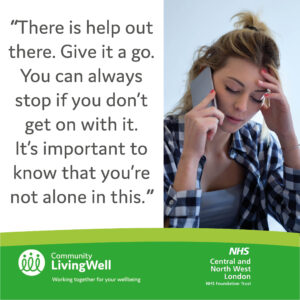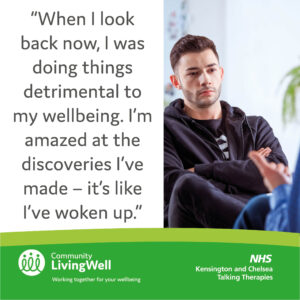What help does Talking Therapies offer?
The Talking Therapies team offers a range of different therapy options. The type of therapy you receive will be discussed with you and will depend on your recovery goals. The therapies available include:
Cognitive Behavioural Therapy (CBT)
With the help of a therapist, CBT can help you identify alternative ways of thinking and more helpful ways of coping that are linked to difficult and distressing feelings, such as anxiety and low mood.
“The CBT therapist inspired me to find solutions to my problems by helping me deal with them in a positive way and breaking them down into smaller parts. Instead of just passively listening, she helped me to find practical ways to improve my state of mind on a daily basis.”
Counselling
Counselling can help you with experiences such as bereavement, relationship problems, abuse as a child or adult, depression or low mood, or life changes such as divorce, getting older or retirement. It is a brief psychological therapy in which you can explore difficult, confusing or painful experiences with the help of a clinician.
“Without a shadow of a doubt, the counselling helped me to feel better. I started to feel much lighter, like a huge weight had been lifted off my shoulders. I realised how much I’d gone through after talking about things that I’d never told anyone.”
Guided Self Help
You and a specially trained clinician work together, using expertly devised self-help workbooks. You will be helped to learn practical tools and strategies to better manage your difficulties. Sessions are available over the phone or face to face.
Couples’ Therapy
Aims to improve symptoms of depression by helping couples build upon the strengths in their relationship and understand the way in which difficulties in the relationship can contribute to depression in one or sometimes both partners.
Online Therapy
SilverCloud is an evidence-based online programme that can help teach you techniques based on Cognitive Behavioural Therapy to improve your mood. Telephone support is provided alongside the online modules.
Groups
A range of groups to help you manage stress, improve your mood and increase activity. We also have groups to help increase self-esteem, manage long-term health conditions, cope after a trauma or bereavement and use mindfulness to manage mood. See all upcoming groups on our Events calendar or read the full descriptions on our Groups and Courses page.
Other short-term Therapies
A range of other short-term therapies are also available. Suitable options for therapy will be discussed with you after an initial appointment (usually by phone).
All therapies available are effective treatments as recommended by the National Institute for Clinical Excellence (NICE).
“Life before I had therapy feels very different to life afterwards and I found the sessions incredibly helpful. Getting things off my chest and having someone who would listen to me was very beneficial as I felt like I had been living in my own head. Through my therapy I was able to accept that my life experience had been very different to most people’s. My abilities are different as I haven’t had the same experiences and opportunities.”








